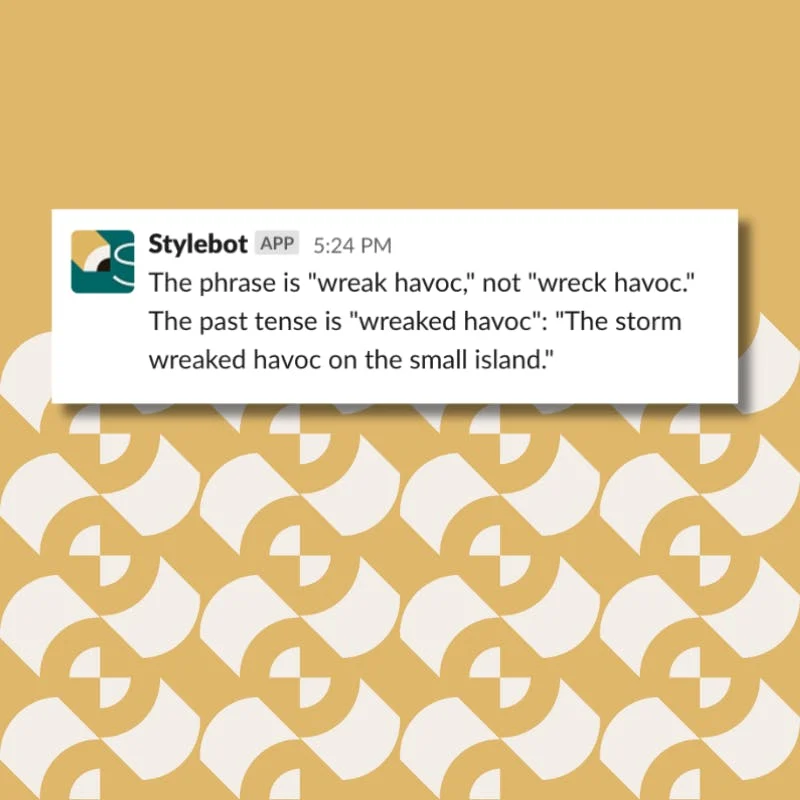If you’ve ever used the wrong word in a common phrase, you’re far from alone. It happens to the best of us. Sometimes, the mistake comes from something as simple as a misunderstanding of the spoken word. Other times, the reason is much deeper.
Such is the case with the words we covered last week: rack and wrack, whose overlapping meanings lead to confusion in the phrases nerve-racking and rack your brain. This week, we’re jumping from “wrack” to “wreck” and another commonly confused phrase: wreak havoc, which is sometimes written as “wreck havoc.”

Some of the confusion between “wreak” and “wreck” might be because they sound similar, but there is a deeper reason as well. Though “wreak” and “wreck” are not typically used interchangeably anymore, back in the 16th century, they were both used to mean “to bring about,” which is how “wreak” is still used today.
It also doesn’t help that “wreck” and “havoc” are both associated with damage and destruction. But you can make that knowledge work for you: With the modern usage of “wreck,” “wreck havoc” means to damage destruction, while “wreak havoc” means to cause destruction. That makes much more sense.
💬 Need more tips?
Want to get writing tips like these on demand? Try Stylebot for free.
📝 About Stylebot
Stylebot helps media professionals save time without sacrificing quality by answering editing questions on Slack, Microsoft Teams and Google Chrome. We’re on a mission to make editing faster, easier and more fun ✨ Learn more about Stylebot or follow us Instagram, X or LinkedIn.
